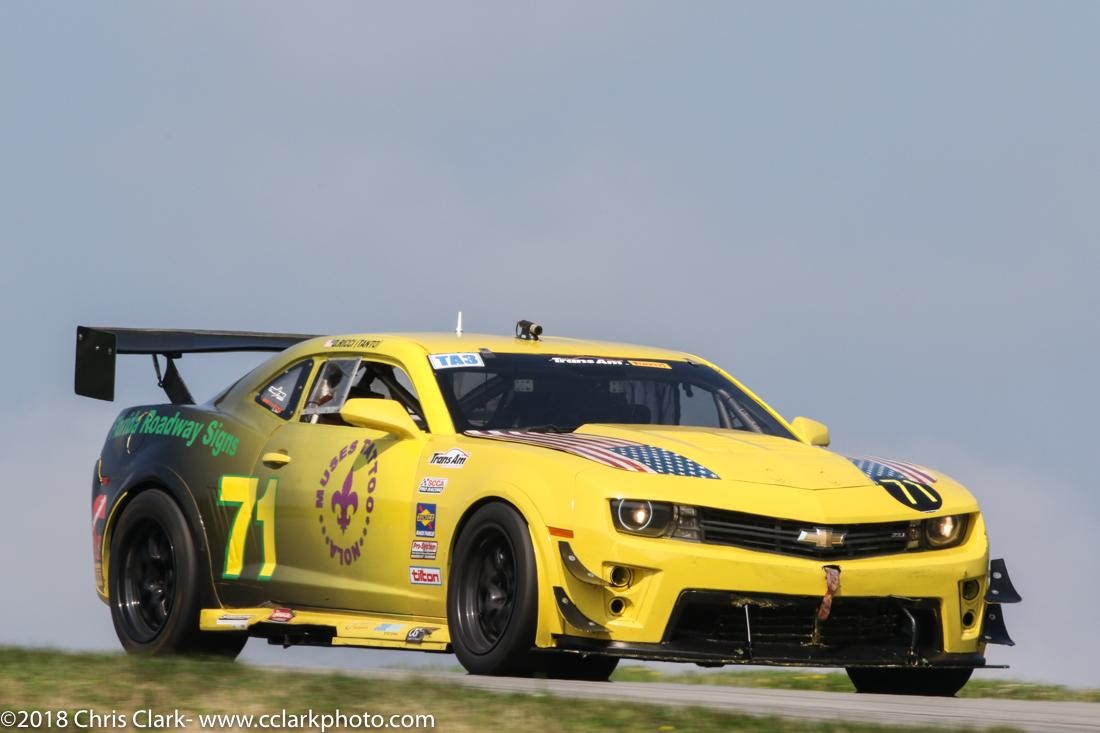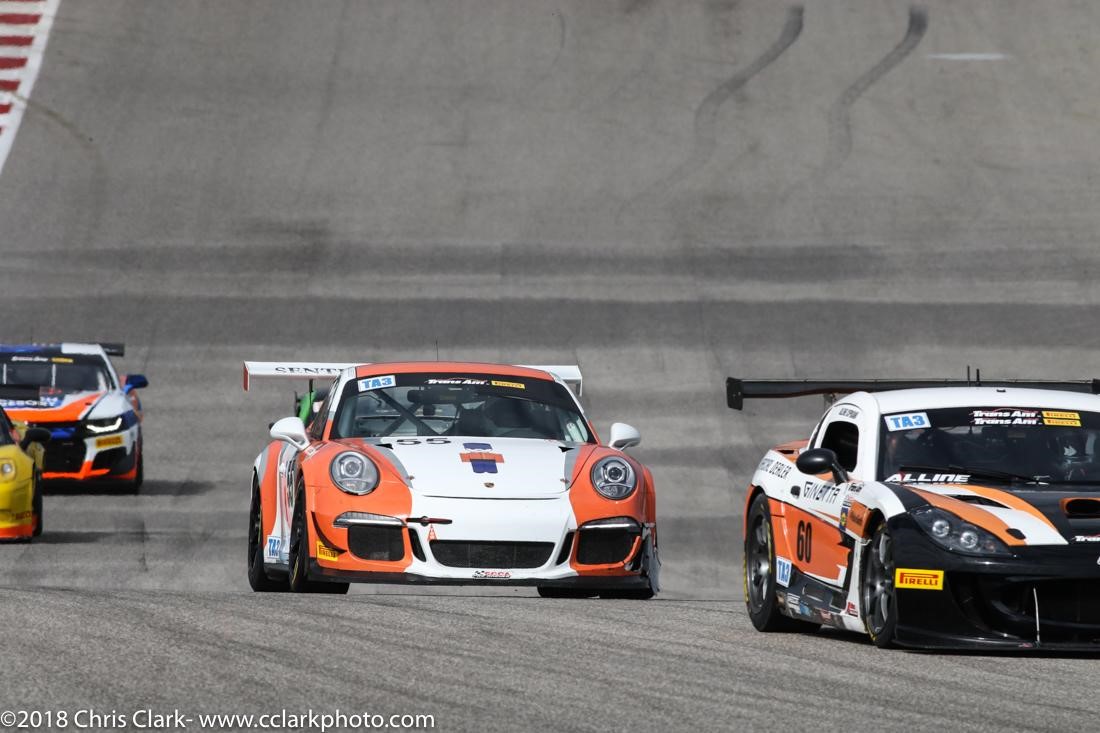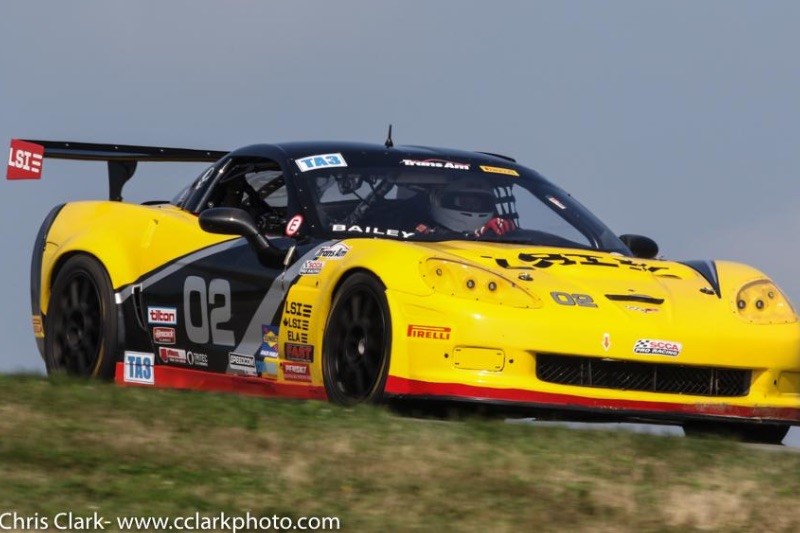New Names, Same Wide-Open Rules for Trans Am
 |
The Trans Am presented by Pirelli Series has revealed new class names for their growing production-based classes. The SuperGT Class (SGT), formerly TA3, and the GT Class, formerly TA4, are now aligned name-wise with other “GT" series and classes in North America.
As the Trans Am Series has spoken to potential competitors, it has become apparent that not everyone is aware that the Trans Am Series now includes production-based classes where they are able to race their "GT" cars. Even though the Trans Am Series started as a purely production-based series in 1966, since the 1980's, when the Trans Am cars started transitioning over to tube-frame chassis with silhouette bodies, many people have come to assume that those are the only types of cars competing in the Trans Am Series.
“We’ve updated the names for the GT and SuperGT Classes to better reflect the kinds of cars that are competing in them," said John Claggett, Trans Am Race Company President. "Diversity is a key aspect of these classes, with sports cars, grand touring cars, performance coupes, and performance sedans, all with varying engines and drivetrain layouts, and all welcomed in the GT and SuperGT classes."
 |
For the 2018 season, the Trans Am Race Company hired a new Technical Director with extensive experience in production car officiating, engineering and team management. During the 2018 season, the class philosophies were solidified, and a new rule set was developed that will remain in effect for an extended period of time to encourage stability, innovation, and growth of the production classes. The liberal eligibility rules allow a wide range cars prepared for both professional, and amateur classes, to race for an extended period of time in order to maximize the return on investment in equipment.
"In recent years, the world of professional motorsports has moved more, and more, towards 'cookie cutter' race cars delivered exclusively from the factory," said Aaron Coalwell, Technical Director for the TA, GT and SGT classes. "While there are some positive aspects to that approach, and Trans Am does welcome these factory built race cars, it removes all the unique innovation that used to be seen from car to car. It has reached the point where customized and tuned street cars are often more innovative than top level race cars."
 |
| No. 02 Corvette |
The GT and SGT classes represent a different approach by establishing a place to race for individual race teams and tuner shops, to compete with innovative and unique vehicles showcasing their abilities. The Trans Am Series wants to help bring innovation and uniqueness between cars from the various teams back into professional racing.
The GT Class uses the FIA GT4 cars and Balance of Performance as its baseline. The GT4 cars are factory built race cars, but they are limited-preparation, using a lot of OEM production parts, and using limited bolt-on aerodynamic parts. Older GT4 models can now be purchased on the used market reasonably. For non-GT4 cars, the rules allow significant freedom to make cars prepared for other series competitive in the class with reasonable build and preparation costs.
The SuperGT Class uses the Porsche 991.1 GT3 Cup Car with OEM mechanicals, and ABS added, as the performance baseline due to its level of testing and development, availability, and operational costs. This class has a higher performance potential, and has the most freedom within the rules for innovation.
The Trans Am Series was started by the Sports Car Club of America (SCCA) and is still closely allied with SCCA and sanctioned by SCCA Pro Racing, allowing for special provisions to be made to allow cars eligible for some of the SCCA Club Racing classes , such as T1 and GT2 production based cars, to easily crossover with minor weight and restrictor adjustments as needed, as well as to encourage GT and SGT teams to crossover to SCCA Club Racing events. There are also a significant number of professionally-built, or factory-built, race cars that have lost eligibility from the professional series they were built for, or will soon lose eligibility, as new models are released. This is a much different approach from most professional series, and is creating great diversity of cars in our growing fields, which will create great racing for the fans.
In order to grow participation in the production classes, Trans Am has begun contacting former competitors to let them know about the many changes made since they last raced with Trans Am. The Technical Department has also started researching what cars from other North American race series, professional and amateur, would easily crossover into the Trans Am GT and SGT classes. Throughout the 2019 season, they will be contacting teams and prep shops to let them know of the opportunities and benefits of racing in the Trans Am Series.
In addition to new rules with longer eligibility periods, the Trans Am Technical Department has instituted more professional technical procedures where all cars go through tech at least once a weekend. This ensures that cars that do not finish on the podium are still following the rules. Following each event, video and data analysis is performed as needed to keep the performance of the various cars balanced.
The Technical Department has also dedicated itself to providing the best customer service of any race series by making the technical process as easy as possible.
The 2019 Trans Am presented by Pirelli season will launch at Sebring International
